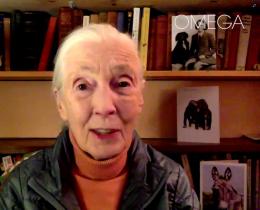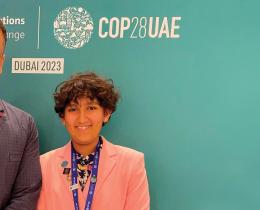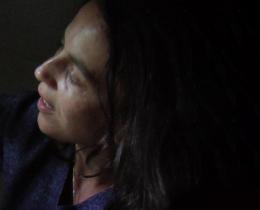Hope has a bad name these days among certain teachers.
On the one hand, it seems to suggest wishful thinking that distracts us from a sober assessment of reality and fosters unrealistic expectations. As Nietzsche put it, “Hope is the worst of evils, for it prolongs the torments of man.”
Meanwhile, in the language of “spirituality,” hope implies a rejection of the present moment, or perhaps a taint of doubt eroding the creative power of one’s intentions. But let us not be so quick to dismiss this primal element of the human psyche.
What does hope tell us, “springing eternally,” as it so often does, like a flower alongside the desolate byways of despair?
Admittedly, people often hope for absurd things that do block their experience of the present truth and their ability to respond wisely to it: the sick woman hoping the lump on her breast will just go away if she ignores it; the child hoping Mommy and Daddy will get back together again; our society hoping the scientists will come up with a solution to climate change.
However it is expressed, the emotional energy underneath hope is, “It’s all going to be okay.”
In a way, that is true—not because our worst fears won’t come to pass, but because we become reconciled to them after they do. The woman will be okay, not because she ignores the lump, but because she acknowledges it and gets it treated, or perhaps because she loses her breast and experiences a love and self-acceptance transcending her appearance, or perhaps because of what happens in the dying process.
Likewise, scientists already have come up with a solution to climate change, many solutions. They are right in front of our faces: conservation, permaculture, renewable energy, simple living, bicycles, zero-waste manufacturing, and so on. But only when climate change hits us in earnest are we likely to implement these solutions on a significant scale.
Hope shows us a destination, but a vast territory, the territory of despair, lies between it and us.
In the darkest despair a spark of hope lies inextinguishable within us, ready to be fanned into flames at the slightest turn of good news.
However compelling the cynicism, a childlike idealism lives within us, always ready to believe, always ready to look upon new possibilities with fresh eyes, surviving despite infinite disappointments. Even in the darkest moments of resignation to the old normal, our participation in it has been halfhearted, for part of our energy was seeking something outside the world as we have known it.
From within the logic of the old story, hope is a lie, a hallucination of something impossible. But it comes from our innate idealism, our heart’s knowledge of a more beautiful world. The beliefs that tell us that a more beautiful world is impossible conflict with the heart that tells us it is.
It is only when the scaffold of those beliefs collapses that hope need no longer clothe itself in the absurd. A new Story of the World gives practical expression to the heart knowing we call hope; then it becomes authentic optimism. Our unreasonable hope is pointing us toward something true. That is why I call it a herald.
Again and again, young people ask me something like “I really want to go into permaculture—that’s what I love—but don’t I have a responsibility to do something bigger than that?” I answer, that choice is only small through the eyes of separation.
The world can change only if billions of people make different choices in their lives, but individually, none of these choices makes a difference. The things that make a difference make no difference. What if I do it, and no one else does? It sure looks like almost no one else is. Why do it?
I am not actually suggesting that we do these small acts because they will in some mysterious way change the world (although they will). I am suggesting, rather, that we orient more toward where our choices come from rather than where they are going.
Complexity theory teaches us that in the chaotic zone between two attractors, tiny perturbations can have huge, unpredictable effects. We are in such a place today. Our civilization is approaching a phase transition. Who can predict the effects of our actions?
A police officer gives a pair of boots to an unshod homeless man, an invisible act of kindness. How could he know that someone was photographing him, and that his act would awaken kindness in millions? The man then sells the boots to buy drugs, inflaming the cynicism of millions more.
Whether invisible or not, acts of great faith, acts that come from a stance deep in the territory of reunion, send powerful ripples out through the fabric of causality. One way or another, perhaps via pathways we are unaware of, they surface in the visible world.
When my children were little they attended a Montessori kindergarten. Never before or since have I encountered a school so vibrant with love, laughter, and gentleness. The teachers treated the children with deep, honest respect, never patronizing them, never coercing them, never manipulating them with disapproval or praise, giving them an experience of unconditional love.
Those kindergarten days are now but a foggy memory to the children who went on from there into the harsh, degrading world of separation, but in my mind’s eye I see a small golden glow inside of them, and within that glow I see a seed. It is the seed of the unconditional love and respect they received there, awaiting the moment to sprout and blossom and deliver the same fruit that my children received to those they touch.
Maybe a year or two of kindergarten isn’t enough to overcome the brutal apparatus of separation that governs modern childhood, but who knows when and how it might blossom forth? Who knows what effects it will bear? To be in a sanctuary of love and respect every day for one or two years during such a formative stage of life imprints a person with a tendency toward compassion, security, self-love, and self-respect.
Who knows how that imprint will alter the child’s choices later in life? Who knows how those choices will change the world?



